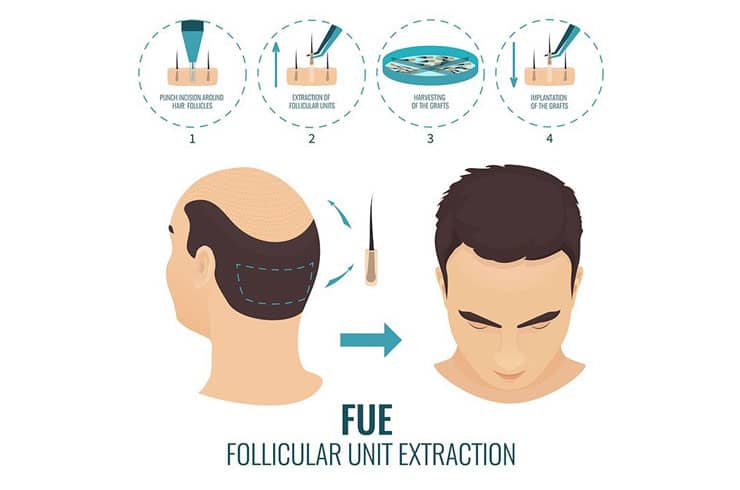Follicular Unit Extraction (FUE)

Request an Appointment
Benefits
- Minimally invasive technique with no linear scarring.
- Faster recovery times compared to traditional hair transplant methods.
- Suitable for patients with smaller areas of baldness or those who prefer shorter hairstyles.
- Harvests follicular units individually for precise transplantation.
- Natural-looking results with improved hair density.
Follicular Unit Extraction (FUE) is an advanced hair restoration technique that involves harvesting individual hair follicles from the donor area and transplanting them into the recipient area of the scalp. During the FUE procedure, the surgeon uses a small, handheld device called a punch tool to extract follicular units one by one from the donor site, typically located at the back or sides of the scalp. These follicles are then carefully implanted into tiny incisions made in the recipient area, where hair growth is desired. FUE offers several advantages over traditional hair transplant methods, including minimal scarring, faster recovery times, and the ability to harvest hair from a wider donor area. This technique is suitable for patients with smaller areas of baldness or those who prefer shorter hairstyles.
At M.B. Patel Hospital, our skilled hair transplant surgeons specialize in FUE procedures, delivering natural-looking results and optimal outcomes for our patients. We utilize state-of-the-art technology and techniques to ensure precise extraction and transplantation of follicular units, minimizing trauma to the scalp and maximizing hair growth. With a focus on patient comfort and satisfaction, we tailor each FUE procedure to meet the individual needs and goals of our patients, helping them achieve fuller, thicker hair and renewed confidence in their appearance.
Risks
- Surgery entails risks, including those related to anesthesia, bleeding, and infection.
- Potential complications include abnormal scarring, blood clots, and nerve damage.
- The risk of dissatisfaction with results or impaired movement due to scarring exists.
- Factors such as surgery type and personal health history influence the likelihood of complications.
- Lifestyle choices, like smoking, can increase the risk of surgical complications.
Benefits
- Plastic surgery can enhance self-esteem and quality of life.
- Patients often experience improved body image and confidence.
- Reconstructive surgery can restore function and relieve pain.
- Corrective procedures may offer better safety and natural appearance.
- Cosmetic surgery can address defects and improve mobility, leading to greater independence.
